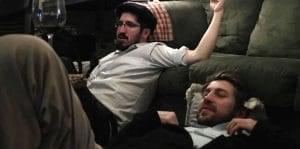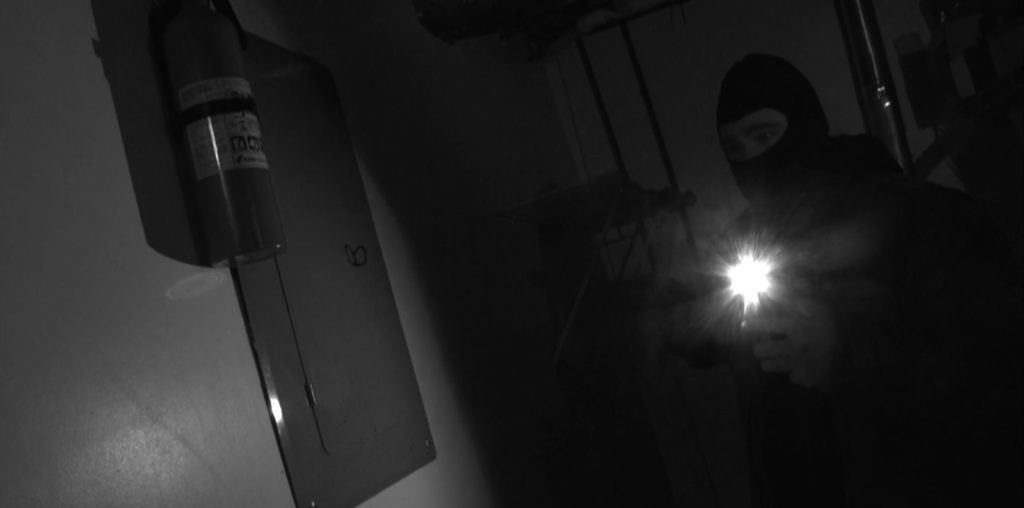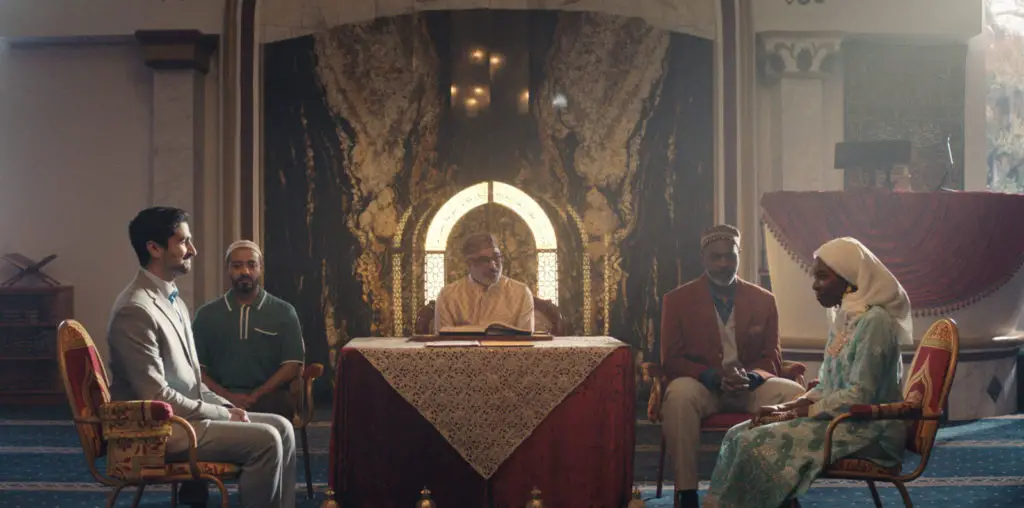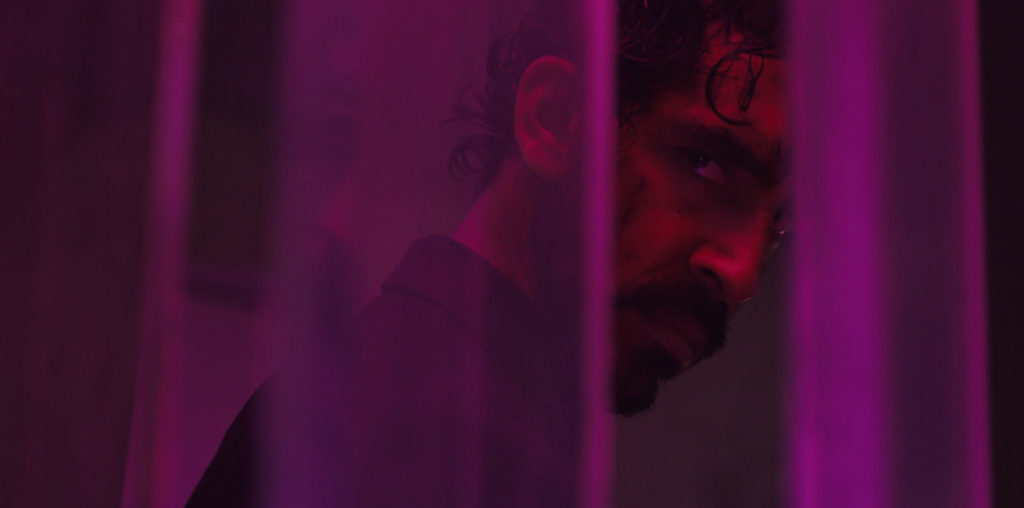
The history of the Jewish people in Poland is a long and troubled one, but a considerable on-screen conversation about said history, does not necessarily a movie make. Nevertheless, Deniz Demirer and Daniel Kremer have taken it upon themselves to broach the topic as the writers, directors, producers, and stars of a truly unique buddy movie gone awry. The film’s intriguing concept centers on two friends, a Jew and a Catholic, comparing and contrasting each other through a shared experience finding an elusive painter. The cast manages scattershot emotionally raw moments. However, Ezer Kenegdo suffers from a fluffy screenplay overwrought with pontificating, flimsy technical craft, and meandering direction squandering its potential.
Yisroel “Izzy” Jonigkeyt (Daniel Kremer) is a Hasidic Jew in New York. His friend Levi (Josh Safdie) helps him prepare for an impending arranged marriage. Izzy travels to San Francisco to enjoy one last spurt of non-religious life before filling his role of a traditional family man. Along with his Polish Catholic friend, Marek Wisniewski (Deniz Demirer), they attempt to seek out Harry Kierk (Rob Nilsson), a hermetic and volatile artist, who is about to destroy his life’s work. From their attempts to meet Kierk through Marek’s anti-Semitic cousin Irek (Kris Caltagirone), Izzy and Marek mull over why the artist fixated his creations’ destruction. At the same time, finding themselves sifting through previously unbeknownst baggage cluttering their respective ancestral roots.

“Izzy travels to San Francisco to enjoy one last spurt of non-religious life…”
Cinematographers Jeff Kao and Gustavo Ochoa (both of whom also play bit parts in the film) provide an uneven cinematic experience with visuals phasing between a realist docudrama and a hyper-stylized surreal introspective. Kremer’s editing makes the most of attempting to bridge these two different styles, however, it falters at maintaining consistent continuity, which is possibly due to Ezer Kenegdo spending nearly five years in post-production burdened with reshoots and rewrites.
While the cold opening scene, opening credits and subsequent 15 minutes are a solid and intriguing setup, the plot loses its way amongst the random conversations on cultural and religious differences that dominate the runtime. Also, the inclusion of a handful of interchangeable characters offers little to the overall story. There are moments where conversations evolve into compelling drama, but all the talk shows a significant lack of “showing not telling.” Interest wanes quickly when nothing but contrarian repetition is shoved at us, and lacking justification for being there. In other words, the screenplay is an absolute mess.

“There is much to appreciate…and it should not be dismissed.”
That said, Nilsson’s Kierk is the absolute highlight of the film with his unrestrained and fascinating performance. Had he been the primary lightning rod between Izzy and Marek bringing out their hereditary differences and challenging their friendship, this movie would have been one of the most compelling of the year. His performance commands attention from the start to when he’s confronting the protagonists with the indomitable question of “what are you fighting for?” The filmmakers end up strangling this potency by severely mitigating his screen time.
There is much to appreciate in Demirer and Kremer’s work, and it should not be dismissed. It runs shallow in its introspection and attempts an unusual cacophony of sight and sound that doesn’t quite work. There are many moments where the sheer power of the cast (especially Nilsson) make the sit mostly worthwhile. Ultimately, Ezer Kenegdo resounds more as a conversational visual essay than a narrative feature film.

Ezer Kenegdo (2017) Directed by Deniz Demirer, Daniel Kremer. Written by Deniz Demirer, Daniel Kremer. Starring Deniz Demirer, Daniel Kremer, Rob Nilsson, Josh Safdie.
★★½ / ☆☆☆☆☆


